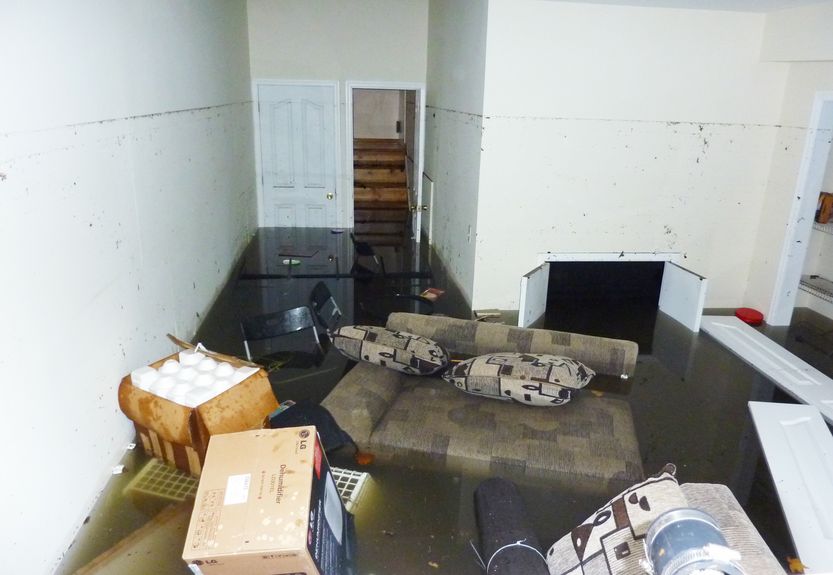
My Basement Flooded, Now What?!
1. Safety First
- Don’t risk injury if your basement is flooded. If there is an inch or more of standing water in your basement, this is considered severe flooding and the water can contain harmful bacteria so avoid entering the basement if possible.
- Do NOT touch any electrical wires. As the old saying goes – water and electricity don’t mix; touching electrical fixtures while wet can be deadly.
- If you have experienced severe flooding, have your basement pumped as soon as possible.
2. Determine the Cause
Before removing any items, it’s important to try to figure out where the water is coming from. You don’t want to start fixing the damage if more damage will inevitably happen! Sometimes the cause is obvious like a busted pipe or heavy rain and a broken sump pump. But other times, it may not be as obvious. Once the water has been removed, it should be easier to find out where the water source is and determine a solution with professional assistance.
Removing the water quickly is important, because standing water can harbor bacteria and create the perfect environment for mold growth. The sooner you remove the water, the faster you can solve the problem. Be sure to contact a professional mold inspection company for an easy test if you smell, see or are concerned about mold. Some mold can be highly toxic and you don’t want to risk it.
3. Repair the Damage
Once the basement is clear of water and has been determined safe to enter, you can start removing your damaged items. Popular solutions to drying out water-logged items are fans, sunlight, bowls of rice, and hair dryers. Try to do as much of your drying outside of the basement if possible, because releasing all of that moisture back into the basement creates a humid environment and promotes mold.
Contact your home/renters insurance company to see if it includes flood insurance that can help replace valuable items or repair damaged parts of your home. Flood insurance is not often included, but can be added to your current plan, and is especially helpful if you live in an area prone to flooding or heavy rains. In fact, today is a great time to call your insurance agent and make sure you are protected if your basement is prone to flooding!
If you had to use professionals to pump out the water, it’s very likely there is permanent damage done to your floors and/or walls. They can likely recommend a repair company if they don’t do it themselves, and often have great preventative solutions for any future flooding that may occur.
4. Take Steps to Prevent Future Floods
There are many ways to prevent flooding, some easy and affordable, others a little more costly but very effective. If you can’t afford water-proofing your walls and floors, these steps should help keep your basement dry(er):
- Clean out your gutters and downspouts frequently
- Routinely maintenance your sump pump and test it before big storms
- Inspect and repair foundation cracks
- Install window well covers
- Landscape your yard properly, to avoid standing water
If you’re not quite sure where to start and want to prevent future flooding, 360 Inspections can help! We provide thorough, comprehensive home inspections that can help you proactively identify some of the potential causes of flooding. Schedule your home inspection today.
